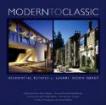|
The Columbia History of the British NovelIntroduction IN a memorable and ringing affirmation, D. H. Lawrence called the novel "the one bright book of life." For Lawrence the novel was much more than a literary genre; it was a means to intensely vital knowledge, far superior to science or philosophy or religion. In place of their abstract and partial views of life, the novel offered the "changing rainbow of our living relationships." But at about the same time that Lawrence was celebrating the power of the novel to give its readers the full and authentic feel of human experience, the Hungarian literary critic Georg Lukacs more somberly traced its degenerative descent from classical epic. Describing the novel in gloomy and decidedly melodramatic terms as the epic of a world "abandoned by God" and as a record of modern humanity's homelessness in The Theory of the Novel: A Historico-Philosophical Essay on the Forms of Great Epic Literature (1920), Lukacs looked back to the immediacy and communal integrity of ancient epic and saw the novel as the expression of what he called a dissonance in modern life whereby individuals are estranged from the external world ...» |
Код для вставки книги в блог HTML
phpBB
текст
|
|




 Бумага для принтера "Svetocopy", формат А3, 500 листов.
Бумага для принтера "Svetocopy", формат А3, 500 листов. 







